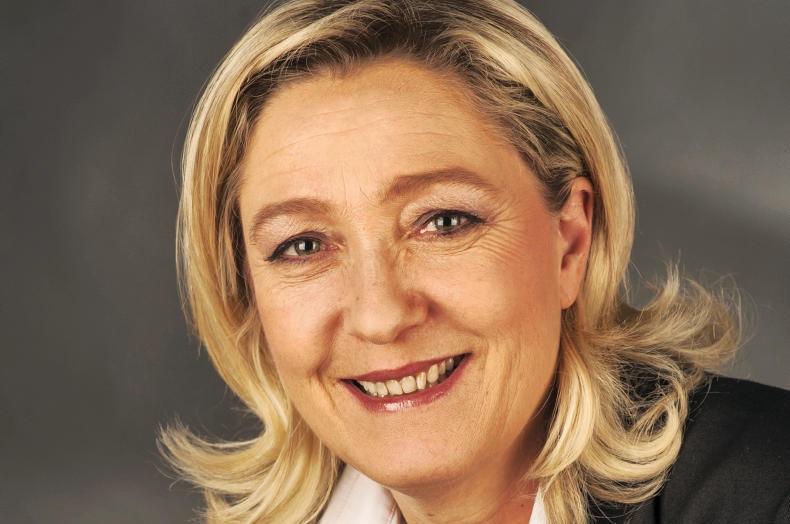In an interview last week, France’s far-right presidential candidate Marine Le Pen praised Donald Trump. “He made Ford relocate a factory. Many companies have announced that they will move back on to US territory and create jobs. This is exactly what I want to do,” she told RTL radio.
How? Her detailed platform for this year’s presidential election will only be published next month, but her National Front party has already made it clear that it would shake up what it calls “the European Soviet Union”.
Under a Le Pen presidency, France would leave the euro, provoking the near-certain collapse of the single currency. The country would also revoke the current EU treaties, which Le Pen wants to replace with a “Europe of nations” focused on practical projects, such as Airbus.
The latest polls show that Le Pen could win the French presidential election’s first round in April with a quarter of the vote. Yet she is widely seen as unlikely to win the run-off between the two best-placed candidates, because the voters supporting mainstream parties have traditionally rallied against the far right in similar situations in the past. The recent US election and Brexit referendum, however, have shown that nothing can be taken for granted.
In a statement on the agricultural price collapse last year, National Front MPs said: “Tackling the roots of the crisis means first facing down the EU to obtain the lifting of sanctions against Russia, compulsory country-of-origin labelling on all food products, sanctions against social dumping between member states and the abrogation of the directive on posted workers, which allows Germany and Spain to exploit hundreds of thousands of low-paid foreign workers.” They also called for the CAP to include more market “regulation”.
On trade agreements, the National Front wants to end negotiations on Europe’s proposed Transatlantic Trade and Investment Partnership (TTIP) with the US and Comprehensive Economic and Trade Agreement (CETA) with Canada. By contrast, the party advocates stronger trade ties with Russia.
Brexit and Le Pen came up in discussions between French and Irish farmers during a study trip by the Kilnamartyra discussion group to western France last week. Host farmer Yves Corvaisier said he did not expect Le Pen to win and would not welcome it, but could not rule it out. While he was dismayed by the UK’s Brexit vote at first, he also said that he had since become more optimistic. Such populist shocks could “force people in European institutions to change”, he said.
The other front-runner in the race, conservative candidate François Fillon, wants to strengthen the euro through further European economic integration rather than leave the single currency. Yet on trade, just like Le Pen, he opposes TTIP and further liberalisation of ties with China. He, too, wants to end sanctions against Russia and introduce protectionist measures against imports from countries with lower social and environmental standards.
Clarity but no upside from Brexit, says Creed
Farming must not become Brexit battleground - Healy
It's not me it's EU - Theresa May's speech
NI agri-food faces uncertain Brexit
Brexit, Trump and hormone beef
Brexit border controls to affect Irish dairy industry
Editorial: farmers facing a decade of political Mayhem
Farmer Writes: watching the Brexit fallout
Letter: Mrs May, why anticipate, with threats, failure in the negotiations?






 This is a subscriber-only article
This is a subscriber-only article










SHARING OPTIONS: